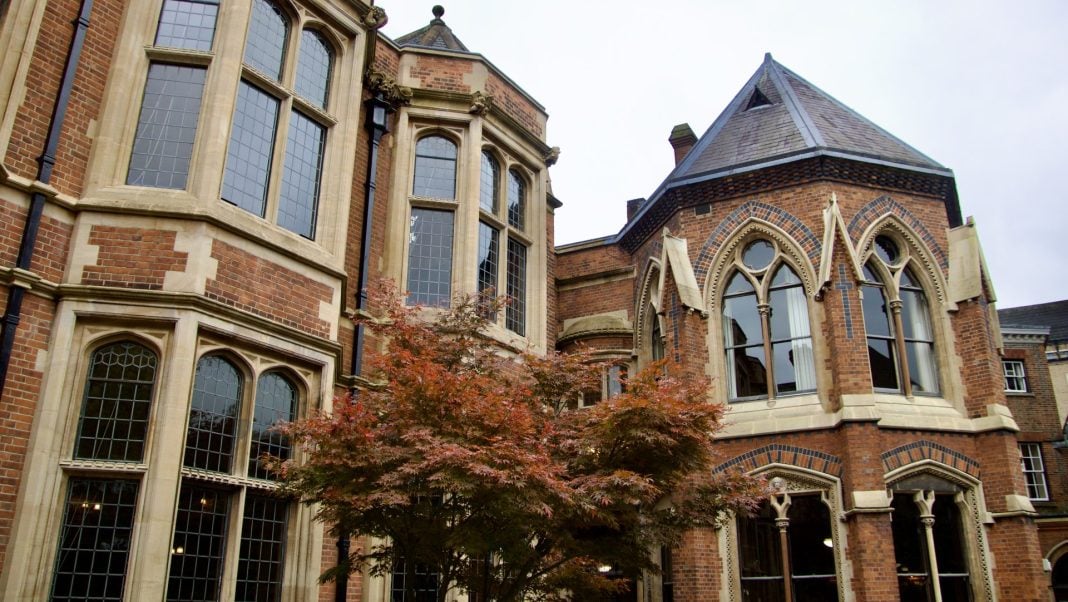The Oxford Union last night voted that multiculturalism does have a future in the UK, the final count seeing 80 votes in proposition and 148 members voting against. After the debate concluded, a motion seeking to overturn the removal of ex-Director of Press Nathanael Kennedy-Leroi from committee failed to pass.
The debate began with Oliver Jones-Lyons (Christ Church), an elected member of Standing Committee at the Union. He argued that multiculturalism had “no present and no past” in the UK, describing it as a “nice fluffy idea that sounds good but looks rather different when you explore what it actually means.” He pointed to examples such as faith schools that operate outside of UK law which have been a “hotbed of abuse and radicalisation of young people”. Throughout his speech – an impressive dance around the fear of being cancelled – Jones-Lyons said the UK should look to implement civic integrationism, rather than viewing people as members of distinctive cultural groups.
Next up was the Union’s Director of Partnerships Olivia Knight-Catalinete (Christ Church). Most of the first half of her speech was taken up with mocking her college counterpart, Jones-Lyons, for his “crimes against the culinary world”: A reference to his home cooking posted on social media (this author declines to comment). As for her argument itself, she criticised the manner in which multiculturalism had so far been implemented, describing it as “a reflection of a failure to integrate”. Her conclusion, which was based around the risk of British culture losing its significance, led to one member questioning whether she truly believed in the opposition cause she was arguing for.
Continuing for the proposition was Eric Kaufmann, a Canadian Professor of Politics known for his work on identity politics. He opened by reflecting on his appearance at the Union 20 years ago, when he argued on a remarkably similar motion as to whether multiculturalism was failing in Britain. His core argument was that multiculturalism was more obsessed with “celebrating differences rather than commonalities” – a phrase he repeated at least four times during his speech. Kaufmann said that such an approach was acceptable in cases where the intensity of cultural divides meant assimilation was unlikely, such as in Northern Ireland, but not in the UK, seemingly failing to realise that Northern Ireland actually is indeed part of the UK.
Lord Singh of Wimbledon, a crossbench peer and Director of the Network for Sikh Organisations was up next for side opposition. One of the clearest and calmest speakers of the night, he described the “tendency to add an -ism to anything we’re a little worried and scared about” as a worrying trend. Drawing on the old cliché that we are “all members of the same one … human family with equal dignity and rights,” Lord Singh explained how it was important not to confuse multiculturalism with cultural division, in which an “us vs them” dynamic thrives.
Floor speeches followed, but not before somewhat of a mass exodus from the chamber leading to President Israr Khan to request that those leaving “please hurry up”. Closing out the case for the proposition was Peter Whittle, a former deputy leader of UKIP, who sought to dispel stereotypes of his party by playing up to as many as possible. He proclaimed that multiculturalism had led British society “to the point of collapse,” denying six points of information during his 10 minute speech. During this time, he praised Elon Musk for drawing attention to a grooming gangs scandal in the UK, said the past week in America had given him “some hope,” and described islamophobia as a “made up nonsensical term anyway”.
Former Conservative Party MP Sir Robert Buckland was the final speaker, with one of the most compelling speeches of the night. Striking back against Whittle’s points, Sir Robert said the UK “did not need a South African émigrée living in America telling us about the affairs of this country,” and claimed that the multiculturalism complained about was not multiculturalism in its true sense. He pointed to his former constituency of Swindon as an example of integration being successful, suggesting that we should “encourage others to contribute in ways that complement, not distract from, what should be a shared set of values”.
Following the main debate, a special adjournment motion sought to overturn a decision by the Standing Committee which had removed Nathanael Kennedy-Leroi from his position as Director of Press in Week 0 of this term. Kennedy-Leroi claimed that this had occurred because he had decided to no longer run on a slate with the librarian, Moosa Harraj, someone he described as a close friend of the president’s, and instead switched to a rival slate instead. He expressed being “hurt and disappointed, but most of all confused,” given he had completed work during the vacation which he said included confirming seven guest speakers.
Opposing him, Sarah Rana, the Union’s treasurer, said the removal was because the president had wanted the Director of Press to be neutral, and that Kennedy-Leroi had been offered alternative roles on committee once the president found out about his decision to run for election. She criticised “more political antics being dragged to this chamber,” and pointed to the fact that the governing body had voted 9-1 in favour of removal. After a vote by voice acclamation produced an unclear result, a vote by membership card saw the motion fail, with 57 votes in opposition against 29 in favour.
Editors’ note: Commentary herein represents the opinion of the reporter, not of Cherwell.


